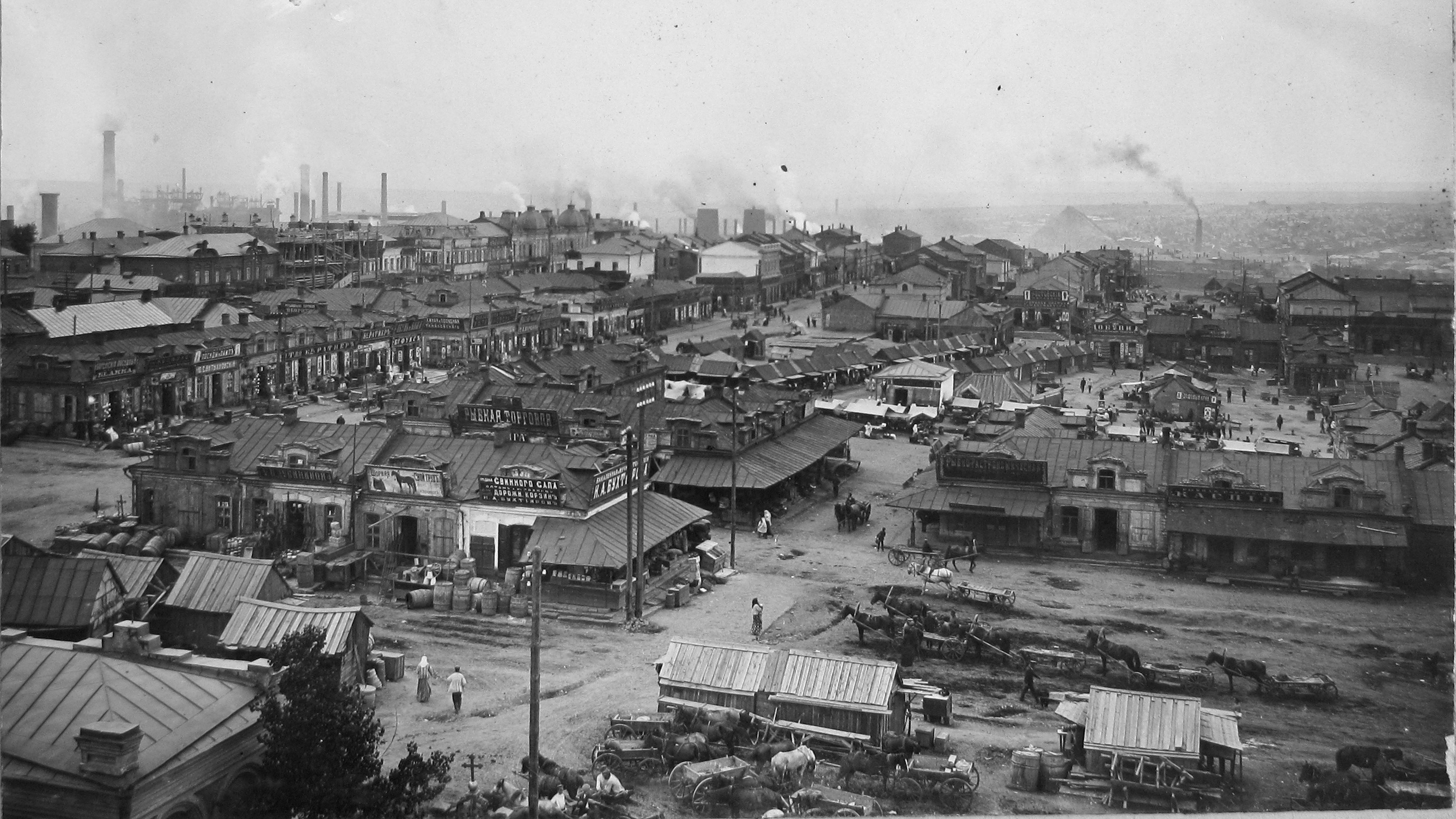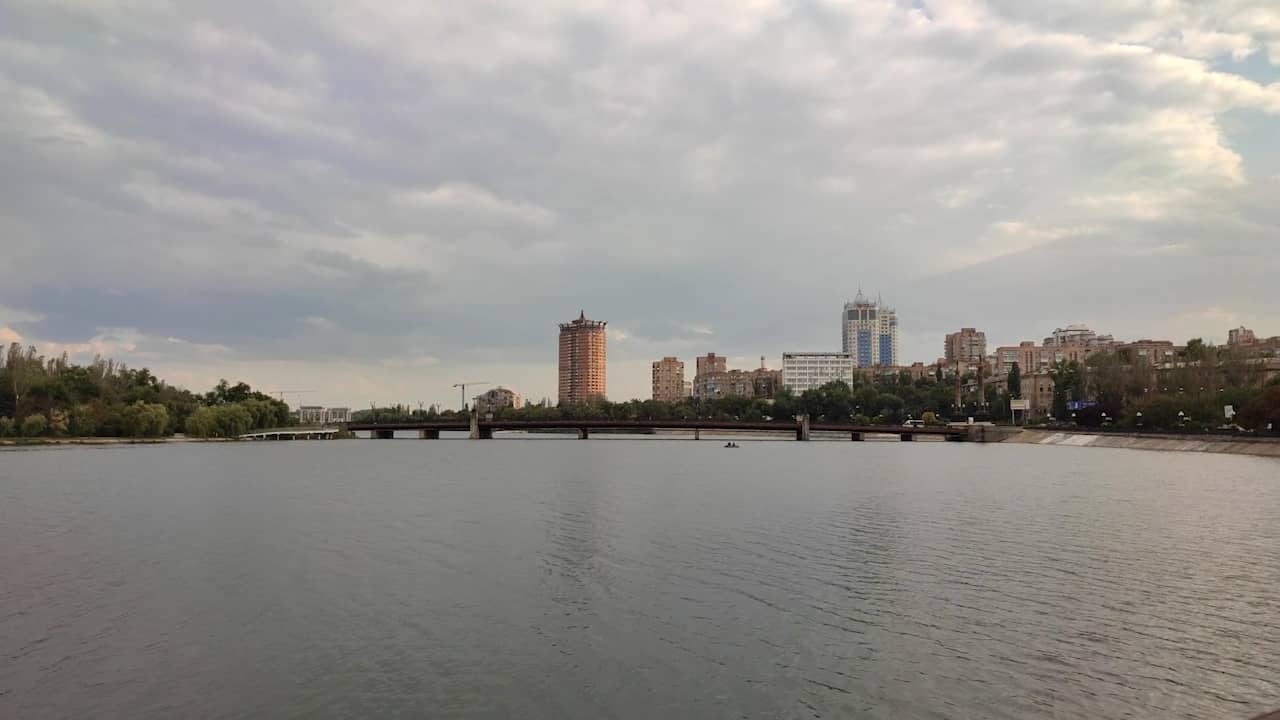
Donetsk / Yuzivka
The Welsh history of Donetsk
Kornii Hrytsyuk: My native Donetsk and its Welsh roots are an important part of «Eurodonbas». For me, this location was both the easiest and the most challenging: on one hand, I know the city and have seen its old, «Yuzivka» part with my own eyes; on the other hand, Donetsk is occupied now, and the last time I was there, it was still under Ukrainian control.
Going there for filming, funded by the Ukrainian government, was an idea we didn't even consider. Ninety-nine percent of my friends and relatives left Donetsk back in 2014, so by 2021, I had almost no contacts there. Nevertheless, despite everything, we felt we had to show what remains from the time of John Hughes.

When this Welsh industrialist arrived in the Ukrainian East in the late 1860s, on eight ships, with his workers, at the age of 50+, he already had the kind of background about which you can write books or shoot films. Patents for inventions, large fortunes, bankruptcy, wealth again, debts, problems with the law — his life in Great Britain was very interesting.
But Hughes was not enough. Therefore, when he learned about the huge reserves of minerals in the distant Donbas, he decided to start from scratch and rented land near the village of Oleksandrivka, on the banks of the Kalmius River. In just a couple of decades, from this farm, near its metallurgical plant, the industrial Yuzivka will grow, which during the times of the USSR will become the million-strong Donetsk.
In Ukraine, the legacy of the Welshman is almost unexplored, although it is very interesting and ambiguous, like the industrialist himself. It was preserved not only in archives or in the form of old buildings, but also penetrated much deeper, into the very essence of the largest city of Donbas.
An ambitious Welshman built his own industrial paradise here, on the outskirts of European civilization, where he not only got rich on coal and metal, but was both a king and a god for the locals. His huge profits bought the loyalty of the tsarist administration, so Yuzivka lived on her own, and her master did not particularly pay attention to the rights of workers, laws and other «trifles». And at the same time, people wanted to get here, because they paid well for hard work, and almost all the benefits of the civilization of that time were here.
Before I left Donetsk, I was not particularly interested in its history. Like all Donetsk residents, of course, I had heard something about «Father Yuz» and loved beer from «Yuzivka Brewery» Yuzivska pivovarna — a popular cafe that opened here at zero. But the Welsh past was perceived rather as an anomaly — we were taught that there was a Wild Field around, and all industry was an achievement exclusively of the Soviet era. Maybe I wasn't interested in history because of my young age (after all, I left Donetsk at the age of 21), maybe because of other circumstances. I like the idea that sometimes, in order to see something interesting in the native environment, you have to go there.
In the end, we found people in Donetsk who helped us with filming. Despite the difficult economic situation in the occupation, they even refused the fees, saying it was important to film for our history. But we still paid them, because these people, patriots who are waiting for the return of Ukraine, really took a risk.
Even filming on the phone, they attracted attention. «And what are you filming?», «And where is your “republican journalist” certificate?». Fortunately, they managed to avoid problems and they took away almost all the preserved structures from Yuzivka's time. They even managed to get through fences and bushes and take down what was left of the Hughes family estate.
It is a shame that the place where the founder of the city lived is in such a terrible state. And the point is not even that the occupying power, which proves that «Donbas is Russia» donbas eto rosia, is not up to the true story. This house was like that until 2014. And not only him.
Yuzivska part of Donetsk in the vicinity of the metallurgical plant (another legacy of «buddy John»), has always been neglected for as long as I can remember. Only those buildings that were somehow used, such as the Great Britain Hotel, were kept in good condition. The Soviet «erasing» of history — both architectural, with the transfer of the city center to the other side, and intellectual — when the archives were destroyed or taken to Moscow, was felt even in the times of Ukrainian independence.
When we were working on «Eurodonbas», we looked everywhere we could for old photos and documents from the time of John Hughes. We found something in the displaced museums of Donetsk region — in Kostyantynivka and Kramatorsk. However, both the quality of the archives and the understanding of what exactly was depicted left much to be desired.
It couldn't be compared to the archives from Wales, scanned in the best quality, where each photo was signed, who it was, where it was and the exact year. We are proud to collaborate with our British colleagues, especially Victoria Donovan, who is one of the most powerful researchers on this topic in Europe.
Victoria helped us get the very important and real Yuzivka artifacts that can be seen in the film. We agreed with her that when Donetsk is free and Ukrainian again, we will definitely go there together for new research. Hopefully it will be soon and there will be more to see.
Archival materials from filming:
Don't miss:
